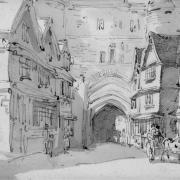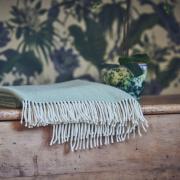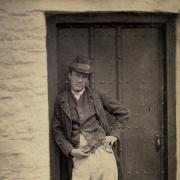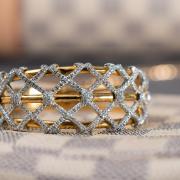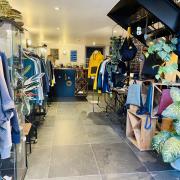Facial conditions such as thread veins, red blood spots and spider neavus are a common problem for many people, usually indicating a dry sensitised skin and high colouring, although they can be apparent on other skin types. A new treatment can now...
There are many causes for facial thread veins and unfortunately living in the UK, with its temperature extremes, is the worst offender. As we move from a cold exterior into overly warm central-heated houses, tiny blood capillaries near the surface of the skin, which contract in the cold and then dilate in the heat, often rupture and cause a tiny 'tear', which leaves the damaged capillary obviously visible on the skin surface. Sunbeds, saunas, alcohol and over-zealous exfoliation are just a few of the other causes for this condition.
In the Westcountry this particular skin condition is commonplace, especially with the outdoor lifestyle synonymous with the region. Although this treatment had been long sought after by women, it's increasingly being taken up by men as it offers a high success rate, and the skin types affected often belong to people associated with the outdoors.
The treatment that I experienced at The Abbott Clinic in Kingsteignton begins with a thorough consultation and skin analysis, during which therapist Sally investigates possible causes of my particular facial thread veins.
The machine used for the treatment works on the principle of thermo-coagulation; a well-established, safe and reliable technique often used in vascular surgery. It involves heat energy being produced which coagulates the blood, causing the vein walls to collapse and disappear. The resulting debris is simply removed through the circulatory systems of the body, much like the debris of a bruise would be. According to Sally, it's a much safer method for treating these conditions than other procedures such as laser, IPL (Intense Pulse Light) and electrolysis as there is no break in the vein itself and therefore no risk of burns, bruising, necrosis or pigmentation.
I'm slightly apprehensive as there is a needle involved. Sally reassures me that this is incredibly fine, and the treatment is very superficial; the needle is only used to 'depress' the skin to release the heat energy, not to actually puncture it.
The needle - a sterile, single-use ultra-fine needle coated with an invisible insulating sheath that protects the skin - introduces high-frequency current into the skin. It feels mildly uncomfortable. Sally tells me that some people feel very little, while others experience more discomfort, depending on pain threshold.
After the treatment my face looks and feels a little flushed, but Sally applies a sterile soothing gel. I'm told to avoid anything to dilate the capillaries, such as heat, and also to treat the area very gently until healing has completed. Although there is no strict aftercare regime to follow, Sally does recommend year-round use of a good sunscreen - factor 25 minimum, containing titanium dioxide.
The treatment is suitable for anybody prone to these skin conditions, although anyone who is pregnant, suffers from epilepsy, has a pacemaker, takes anti-coagulants, suffers from skin infections or uses fake tan products should take advice. Depending on skin type and condition, treatments are usually carried out in 15-minute sessions, at three- to four-weekly intervals for optimum results.
Up to three treatments are normally recommended for most people, whilst those with more prominent veins or rosacea usually require more. Once my skin had settled down, my own very fine veins were almost gone, but for complete clearance I booked myself in for a second session.
LUCY PARKER
Sally Abbott offers V-Beauty treatments at The Abbott Clinic in Kingsteignton. Private home visits are also available. (Tel 01626 330624, www.vein-removal.co.uk







